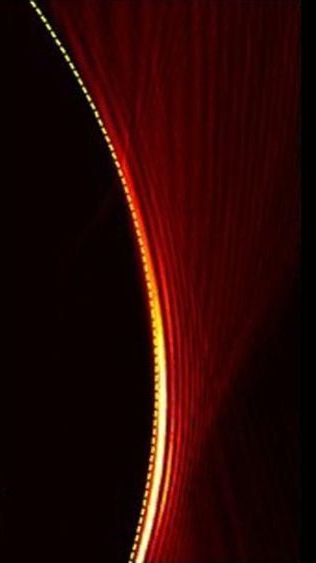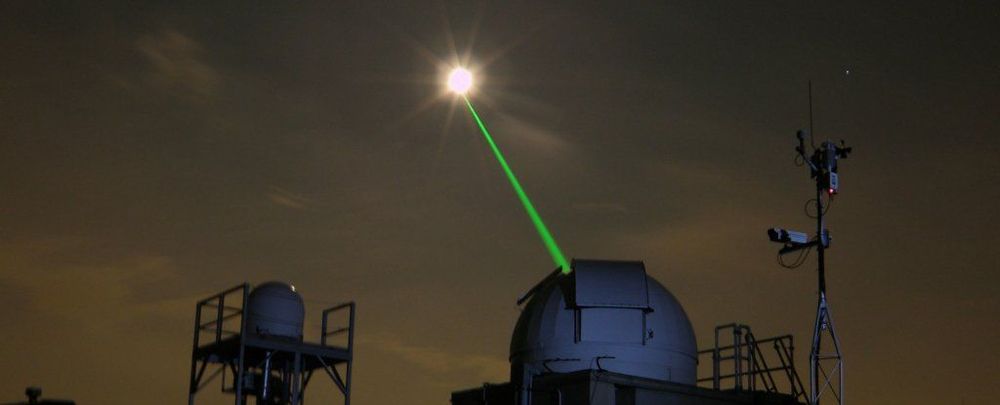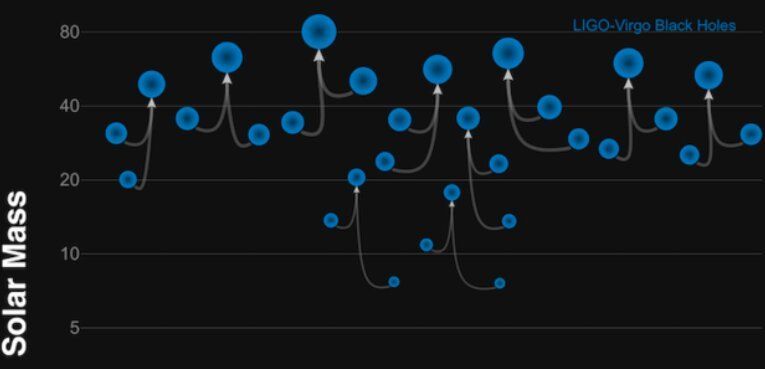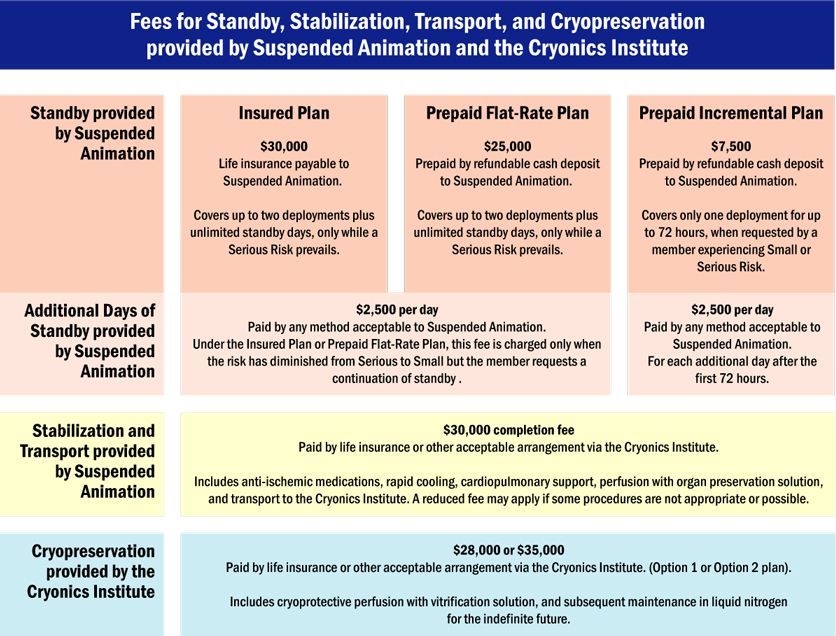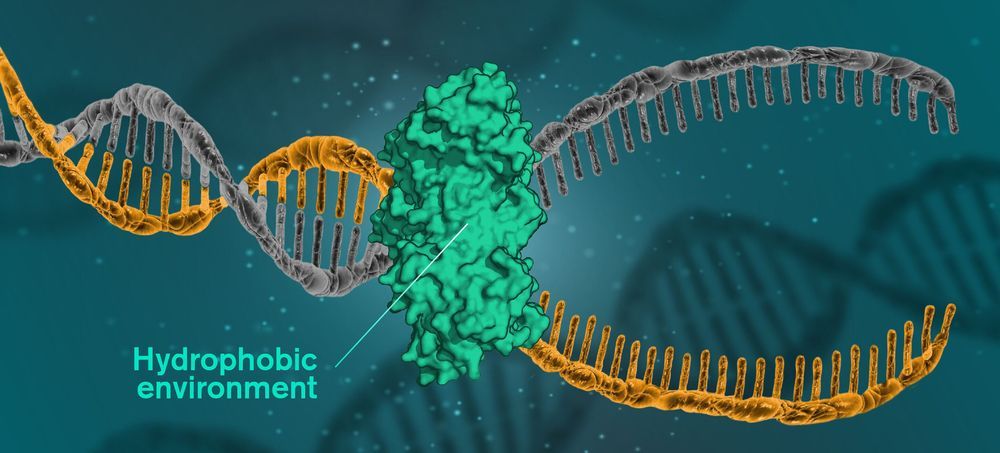Page 8311
Sep 23, 2019
Physicists Have Designed a Laser Defence System to Cloak Earth From Bad-Guy Aliens
Posted by Quinn Sena in categories: alien life, physics
Circa 2016
We humans are pretty into the idea of finding aliens, but have we really thought through what would happen if we stumbled across extraterrestrial intelligence that didn’t want to ‘come in peace’, and instead was hell-bent on mining our fair planet for everything it’s got?
No? Well, luckily for us reckless daydreamers, astronomers have our back, and have come up with a pretty solid plan that would cloak our planet from any bad-guy aliens out there looking for us. And it relies entirely on lasers (what else?).
Sep 23, 2019
This interactive game builds robots out of puzzles — Strictly Robots
Posted by Genevieve Klien in categories: futurism, robotics/AI
Sep 23, 2019
Russia Begins Commissioning of Floating Nuclear Power Ship
Posted by Fyodor Rouge in categories: nuclear energy, sustainability
- The floating power unit Akademik Lomonosov has arrived at the port of its permanent location in Pevek, Chukotka, in Russia’s Far East, where it is being docked to start operations by the end of this year.
- Once commissioned, it will become the world’s first operational nuclear power plant based on small modular reactors (SMRs) technology and a ‘working prototype’ for reliable source of low-carbon energy supply in remote areas.
“It’s maybe one small step for sustainable development in the Arctic, but it’s a giant leap for the decarbonisation of remote off-grid areas, and a watershed in the development of small modular nuclear power plants in the world,” said Rosatom CEO, Alexey Likhachev.
Director General of the World Nuclear Association, Agneta Rising, commented: “To meet the nuclear industry’s Harmony goal of supplying at least 25% of the world’s electricity by 2050 we will need to bring the benefits of nuclear energy to more people in a wider range of locations.
Sep 23, 2019
Theory proposes that LIGO/Virgo black holes originate from a first order phase transition
Posted by Genevieve Klien in categories: cosmology, particle physics
A few years ago, the LIGO/Virgo collaboration detected gravitational waves arising from a binary black hole merger using the two detectors of the Laser Interferometer Gravitational-Wave Observatory (LIGO). This eventually led to the observation of black holes with masses that are roughly 30 times the mass of the sun. Since then, researchers worldwide have been investigating these black holes, specifically examining whether they could be of primordial origin, meaning that they were produced in the early universe before stars and galaxies were formed.
Hooman Davoudiasl, a theoretical physicist at the Brookhaven National Laboratory in New York, has recently introduced a new theory suggesting that the black holes observed by the LIGO/Virgo collaboration originate from a first order quark confinement phase transition. In his paper, published in Physical Review Letters, Davoudiasl implemented this idea using a light scalar that could turn out to be a good dark matter candidate.
Recent detections by the LIGO/Virgo collaboration suggest that there are several black holes that have similar masses (approximately 30 solar masses). This suggests that there might be a population of black holes that are characterized by a typical mass value.
Sep 23, 2019
This Pet Feeder Uses Facial Recognition So the Right Pet Gets the Treats
Posted by Quinn Sena in categories: food, mobile phones, robotics/AI

If you have more than one pet, then you know how chaotic feeding time can be. Italian company Volta is hoping to make the process just a little bit easier with its AI-driven pet feeder, Mookkie, which visually recognizes each individual cat or dog and places their prepared food at each pet’s disposal.
The Mookkie, winner of the Innovation Award in the Smart Home category at CES 2019, features a wide-angle camera that deploys logic similar to the “face-unlock” feature of smartphones.
Continue reading “This Pet Feeder Uses Facial Recognition So the Right Pet Gets the Treats” »
Request Registration Code
Terms of Service
All messages posted at this site express the views of the author, and do not necessarily reflect the views of the owners and administrators of this site.
Sep 23, 2019
Kevin Smith Wants Michael Keaton for a ‘Batman Beyond’ Movie
Posted by Quinn Sena in category: entertainment

Recently on the Fat Man on Batman podcast Marc Bernardin brought up an exciting idea for a new Batman Beyond movie. Kevin Smith was completely for it.
Batman Beyond originally premiered January 10th, 1999. That makes it 20 years old now. It’s hard to believe that time has gone by so quickly. Batman Beyond was one of the best animated series for Batman besides well, Batman the Animated Series. It followed Terry McGinnis as he navigates becoming Batman after Bruce Wayne suffers a heart attack and can no longer do the dirty work on the streets. Bruce before that point was fighting in a mech suit trying to keep up with all of Gotham’s atrocities.
Continue reading “Kevin Smith Wants Michael Keaton for a ‘Batman Beyond’ Movie” »
Sep 23, 2019
Low-loss YIG-based magnonic crystals with large tunable bandgaps
Posted by Quinn Sena in category: computing
O.o.
Control of spin waves in magnonic crystals is essential for magnon-based computing. Crystals made of ferromagnetic metals offer versatility in band structure design, but strong magnetic damping restricts their transmission efficiency. Yttrium iron garnet (YIG) with ultralow damping is the palpable alternative, yet its small saturation magnetization limits dipolar coupling between discrete units. Here, we experimentally demonstrate low-loss spin-wave manipulation in magnonic crystals of physically separated nanometer-thick YIG stripes. We enhance the transmission of spin waves in allowed minibands by filling the gaps between YIG stripes with CoFeB. Thus-formed magnonic crystals exhibit tunable bandgaps of 50–200 MHz with nearly complete suppression of the spin-wave signal. We also show that Bragg scattering on only two units produces clear frequency gaps in spin-wave transmission spectra. The integration of strong ferromagnets in nanometer-thick YIG-based magnonic crystals provides effective spin-wave manipulation and low-loss propagation, a vital parameter combination for magnonic technologies.
Sep 23, 2019
DNA is held together by hydrophobic forces
Posted by Paul Battista in category: biotech/medical
Researchers at Chalmers University of Technology, Sweden, have disproved the prevailing theory of how DNA binds itself. It is not, as is generally believed, hydrogen bonds which bind together the two sides of the DNA structure. Instead, water is the key. The discovery opens doors for new understanding in research in medicine and life sciences. The findings are published in PNAS.
DNA is constructed of two strands consisting of sugar molecules and phosphate groups. Between these two strands are nitrogen bases, the compounds that make up genes, with hydrogen bonds between them. Until now, it was commonly thought that those hydrogen bonds held the two strands together.
But now, researchers from Chalmers University of Technology show that the secret to DNA’s helical structure may be that the molecules have a hydrophobic interior, in an environment consisting mainly of water. The environment is therefore hydrophilic, while the DNA molecules’ nitrogen bases are hydrophobic, pushing away the surrounding water. When hydrophobic units are in a hydrophilic environment, they group together to minimize their exposure to the water.
